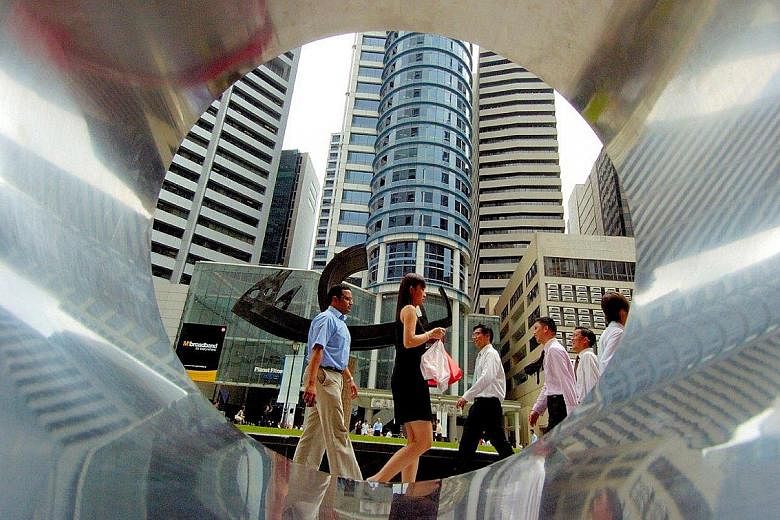While a relief scheme for the self-employed has been expanded to include more people, some who have suffered a steady loss in income amid the Covid-19 pandemic claim they are still ineligible for any aid.
Around 100,000 of the self-employed will now be able to automatically benefit following enhancements made to the Self-Employed Person (SEP) Income Relief Scheme (Sirs) as part of the supplementary budget announced in Parliament on Monday.
The Ministry of Manpower made two key enhancements to the scheme, which now includes SEPs who also earn an income of no more than $2,300 a month from employment work, as well as those who live in a property that has an annual value of up to $21,000. This will be based on one's place of residence on their NRIC.
However, some may still miss out on the benefits and are seeking other sources of income.
Mr Philip Taim, 60, a self-employed tour guide, is unable to qualify for Sirs, as his wife, who is a sales agent, has an assessable income of more than $70,000 a year.
The faltering tourism sector has led to a complete loss of income - which averages out to more than $1,500 each month - for Mr Taim, placing an additional burden on his wife, who is the main breadwinner for their family of four.
To better help tour guides caught in a similar situation, he suggested that the training support schemes under the SkillsFuture series be expanded to include professional development courses, as well as foreign language courses for them.
"I think at the end of the day, we still want to stick to our careers as tour guides, so we would like to take this downtime to upskill ourselves," he said.
Another SEP, Mr Sean Goh, 40, who was a film festival operations staff member, found himself seeking temporary employment as a temperature screener at a kidney dialysis centre.
He narrowly missed the eligibility criteria for Sirs despite the enhancements as his private property has an annual value of over $21,000. "It's the first time in my life that I'm actually applying for government aid, but I'm agreeable to downgrading my lifestyle in order to survive," he said.
A 36-year-old freelance illustrator who wanted to be known only as Ms Nichole is worried about expenses in the coming months as she is an expectant mother. She is unable to benefit from the scheme as her husband, who works in IT at a consulting firm, has an assessable income of over $70,000 a year.
"My main income comes from art projects, like commissioned illustrations for events and art festivals. I gave workshops too, but these have stopped now," she said. For instance, the sudden cancellation of a major festival saw an immediate loss of income of around $10,000.
She is now switching to freelancing on graphic design, hoping to reach out to overseas agencies for projects as exchange rates are now favourable.
Freelance musician Rene Ann Wong, 24, is worried that she may not qualify for the scheme as she had not registered as an SEP before March 25.
Having started work as a full-time freelance musician only last August, she said she had "wanted to accumulate at least a year's worth of experience before registering as an SEP, because (she needed to get used to things) such as irregular payments and projects that span months; for instance, artist royalties usually come in by the quarter".
Mr Sheldon Gooi, president of the Star Association - a national body representing freelancers from the events and entertainment industry, said the association is working towards proposing a tiered relief scheme for those do not meet the criteria to receive a lower level of assistance to tide them over.
For instance, business owners who own small, private limited companies are ineligible for the Sirs scheme, as they draw a monthly salary as company employees.
"Some of them are one-man show companies and have no employees, hence they are unable to benefit from the Jobs Support Scheme as business owners and yet will not qualify for Sirs either," said Mr Gooi, referring to a group who are unable to benefit from either scheme.
Ms Jean See, acting director of NTUC's freelancers and self-employed unit, said it welcomed the enhancements to Sirs as an additional 12,000 SEPs are now able to benefit. She also said the unit will be helping those who narrowly missed the criteria with their applications and appeals, which can be submitted from April 20.
Correction: An earlier version of this story said MOM's enhancements to Sirs would include those who own property that has an annual value of up to $21,000. It should instead be those who live in a property that has an annual value of up to $21,000, based on the place of residence on one's NRIC. We are sorry for the error.












